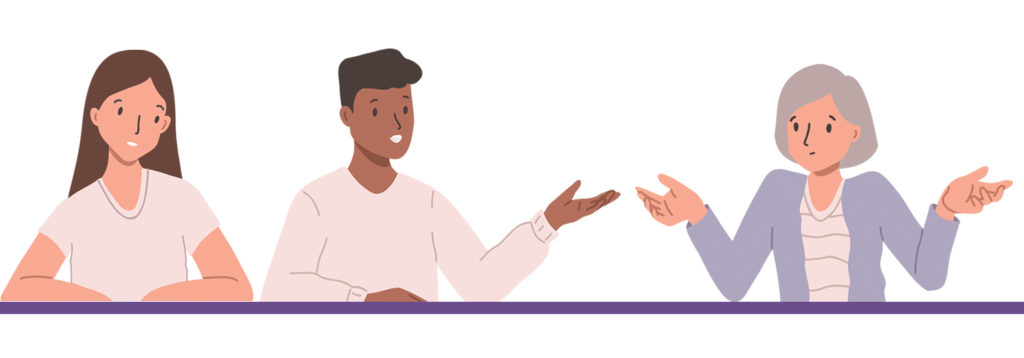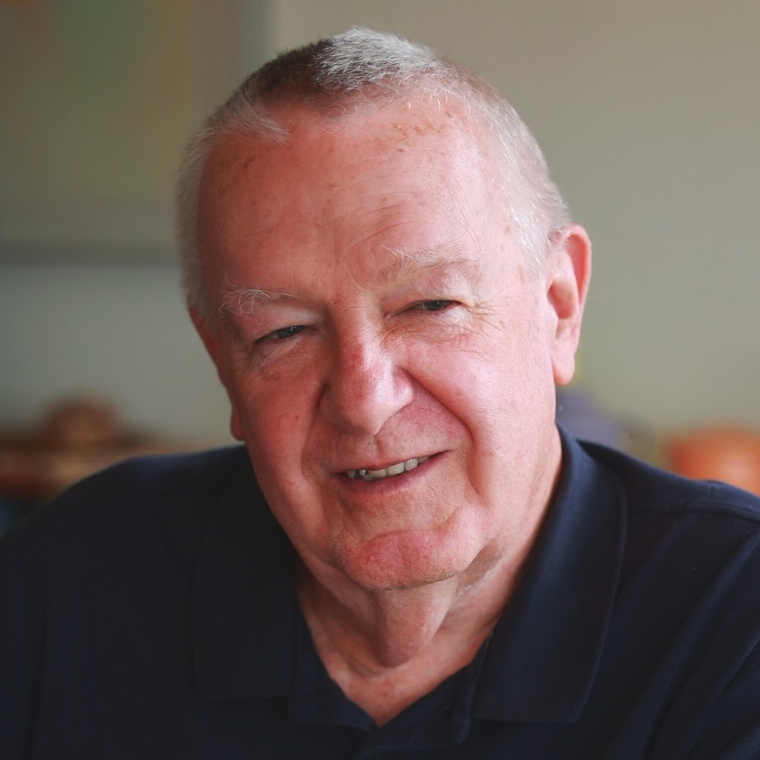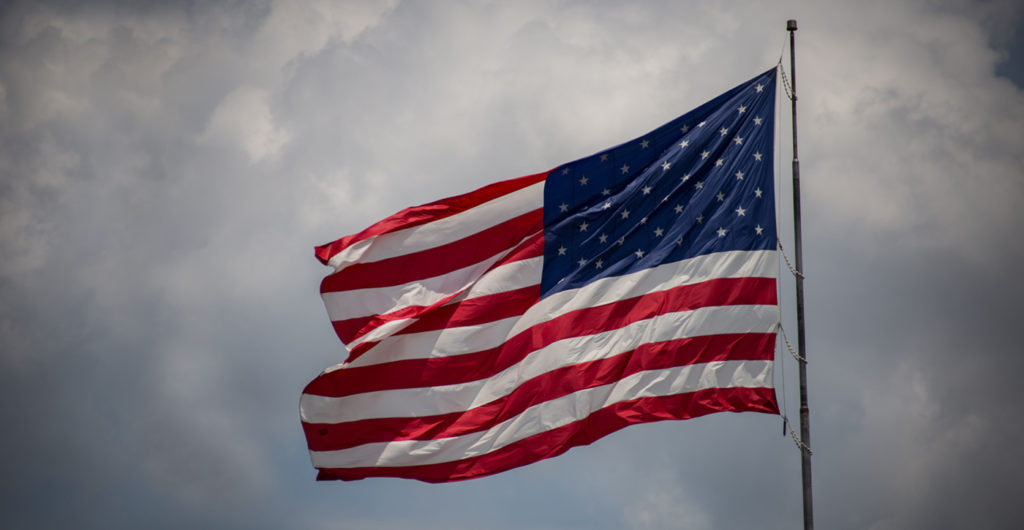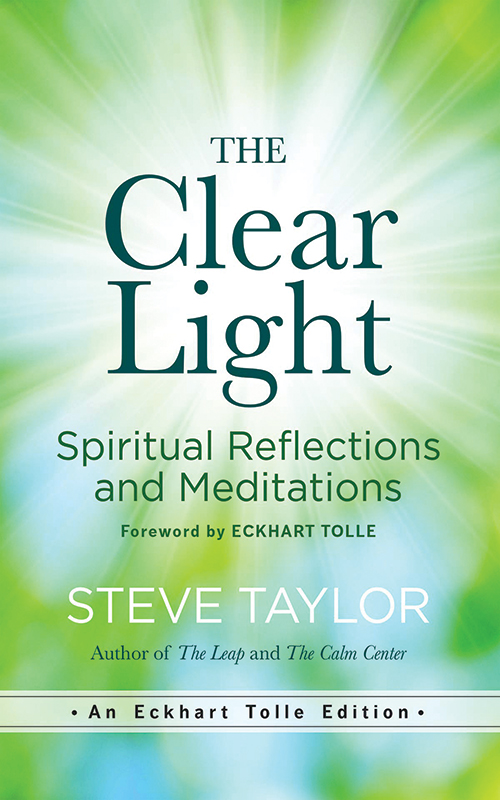Meeting for Business as Spiritual Rehearsal
July 1, 2022

Illustrations by tannikart
Although I knew little about Quakers when I first started attending a Quaker meeting, I quickly became comfortable with meeting for worship. The basic beliefs and testimonies of the Religious Society of Friends corresponded so closely to the spiritual beliefs I had evolved for myself that one could say I was a Quaker without really knowing it. I was so comfortable that I felt I could apply for membership after only two or three months. However, I knew that becoming a member meant making a commitment to participate in the full life of the community, not merely to show up for an hour on Sunday morning. To test whether I was prepared to do that I felt I had to start attending meeting for business.
I knew even less about meeting for business than I did about meeting for worship. From the few books I’d read, I knew that there was no voting and that decisions were made by what I would have called “consensus,” but that’s probably about all I knew. The agendas for the meetings looked much the same as those for board or committee meetings at my office, and the business meetings themselves seemed very similar. Yes, there was a bit of silence at the beginning, but then items were presented and discussed, and eventually decisions were reached by what seemed to be unanimous consent, even though there was no voting. The process looked so similar to my work that it was natural for me to bring to these meetings the same attitude and approach I brought to meetings at my office. In those meetings my objective was to convince others that my approach to an issue was the right one and the one that should be followed. I was good at presenting my views, had strong opinions, enjoyed debate, and was verbally skillful at making my point and pointing out the weaknesses in other opinions. However, although no one complained about my behavior or eldered me or gave me any advice, I increasingly came to feel that this approach was not making me a constructive participant in meeting for business.
Although meeting for business was properly called meeting for worship with attention to business, the “for worship” part had no impact on me until I began to think more rigorously about what I was doing in meeting for worship itself. That led me to conclude that worship was a more complicated process of spiritual practice than just sitting silently waiting for a divine message to appear. I described the idea of meeting for worship as spiritual practice in the essay “Wait and Watch,” published in Friends Journal in June 2006.
In that essay, I used the word “practice” in the sense of its meaning “a repeated exercise in an activity requiring the development of a skill.” As examples, I mentioned the solitary practice of a musician or actor preparing for a concert or play, or the batting practice of a ball player in anticipation of the game. Similarly, I said, meeting for worship was an opportunity to practice and develop skills to make the performance of our daily lives more spiritually centered. In using those analogies, I forgot that there was an intermediary step between practice and performance: rehearsal. A rehearsal is an event where you take the skills you have learned in solitary practice and apply them together with others in a setting that simulates reality but is not the real situation. My Oxford American Dictionary uses the phrase “trial performance.” The most challenging aspect of a trial performance is learning to interact with others without forgetting the skills learned in solitary practice. A rehearsal provides the opportunity to do that in a safe environment, where the focus is on the process of working together. Only in the final dress rehearsal is the focus on the outcome expected to be achieved in the actual performance.
If the way we live our daily lives—the way our lives speak from a spiritual center—is the equivalent of the actual performance, then meeting for worship with attention to business—the process of interacting with others in a spiritually centered way—is the intermediary step, the bridge between practice and performance that the concept of rehearsal implies. This led me to consider how the practices I’m learning in meeting for worship inform my behavior in meeting for worship with attention to business, with the following results.

Being Present
The first skill I am practicing in worship is being present. Being present means being fully aware of where I am and what I am doing in that moment. In meeting for worship, this comes from having adequate time to settle into silence and allow my mind to free itself of the distractions that constantly occupy it. Most meetings for business begin with a brief period of silent worship that is usually too brief for me. So, when I attend such meetings, I try to arrive at least five minutes early to give myself that extra time to set aside whatever I was doing that morning or whatever I hoped to be doing later that day.
The need for an extended period of silence was captured for me by a Quaker anecdote (intended to be humorous, I think) about a clerk who started a meeting for business by saying, “We have a long and complicated agenda, so we will need a longer period of silence.” The humor is that in a secular context, the chair of the meeting would say, “We have a complicated agenda, so let’s get started quickly.” (I’ve said that myself!) The opposite approach is a clear reminder that the best decisions, the ones that strive to seek the will of God in a matter, require as much focused attention as does sitting in worship waiting expectantly to hear or be inspired to give a spiritual message, and therefore they need to be grounded in an adequate amount of silence.
Being fully present is not only required at the start of a meeting but throughout its course. Here again, a practice from worship is relevant. In meetings for worship, we are expected to allow adequate time between two messages so that the first can be fully absorbed before a new idea is introduced. For the same reason, in a meeting for business it is appropriate to allow a few minutes of silence between agenda items. When this does not happen, I find it helps me make the transition from one item to another by consciously taking three deep breaths: the first to release the previous item, the second to bring myself into the present, and the third to open myself to a new issue.
Patience
The second skill I practice in meeting for worship is patience: the patience to sit in silence, expectantly waiting to see if any divinely inspired word will come forth. Patience is even more necessary in meeting for business for several reasons.
The Quaker process of decision making can be long and sometimes feel tedious. I am often impatient, feeling that the right decision is obvious and that we should make it and move on. This is clearly the result of my eagerness to move decisions along expeditiously in my daily work. But the most obvious decision is not always the right one. Pushing hastily for a decision tends to forget that the process is more important—the journey more important than the destination, you might say—so patience is needed to let the process unfold and allow time for the right decision to emerge.
Quite often some items on the agenda interest me more than others. In those cases, patience is needed to enable me to listen attentively to the ones of less interest. Here again, however, a practice from meeting for worship is relevant. In meeting for worship, I am reminded to come without the expectation of either speaking or remaining silent. I should be open to however the Spirit leads me. The same applies to meeting for business. The fact that I feel I am not interested in a particular item may very well give me the detachment needed to see a way forward to a decision, whereas my ego involvement in other issues may make it difficult for me to see past my own opinion. Rather than be constrained by preconceived positions, I need to be engaged in the discussion but detached from the outcome and open to unexpected influences and ideas.
Remembering God
In a rehearsal for a play, there is usually a director; for a concert, there is a conductor; and for a baseball game, a coach. That is, there is always an independent entity with an overall vision of the desired outcome. In meeting for business, this independent entity is God, and that is essential for me to remember.
“Remembering God” is a Muslim phrase I used in “Wait and Watch” to describe an attitude toward meeting for worship that also applies to meeting for business. Remembering God helps me to remember that we are searching for God’s way with respect to the matters under consideration—not my way or the way of others present—and helps me develop that detachment from outcomes I mentioned before. Remembering God reminds me that there is that of God in each individual present, which helps me listen to differing opinions in a non-judgmental manner. The fact that I am advised not to respond to a message in meeting for worship makes it easy to ignore messages that don’t seem relevant to me. However, this is more difficult in meeting for business, where remembering that of God in others is more essential. Being non-judgmental applies to both what is said and who is speaking, since I know I relate more to some people than others, and that can easily affect how I perceive their opinions. Remembering that God can use anyone to deliver the message needed at that moment helps me to be receptive to ideas from unexpected sources and to maintain that sense of detachment that allows a path forward to emerge.

Knowing When to Speak
Acritical skill I learn in worship is when to speak and when to remain silent: When is a message I feel inspired to give a true message, or when is it just an interesting thought or something meant solely for me? In “Wait and Watch,” I said that I had to feel compelled to speak and used the term “foreboding”—a feeling that I could not avoid this task even if I wanted to. Much the same is true for meeting for business and here the concept of “wait and watch” is most important.
The phrase “wait and watch” comes from Jesus’s request to his three disciples when he went off to the garden to pray on his final night. He was asking them to stay awake and alert: to watch and listen for something that might happen, although he had no idea what it might be. Waiting and watching is good advice for me because my natural tendency is to state my opinion quickly in order to influence the discussion. But if I wait, someone else may express my point of view, and there is no need for me to speak at all. If I watch—in this case listen, and listen non-judgmentally—then I may change my mind about what I intended to say and either speak or not as seems appropriate, or be the one sufficiently detached to see a middle path through differing opinions that can lead to a decision.
If I speak, I try to be guided by another practice from meeting for worship, which is not to start with or to frequently use the word “I.” If a message is truly inspired, it’s not mine; it is not coming from me but through me. In meeting for business not using the word “I” helps me to speak to the issue rather than to my opinion. I could say, “I think the seat cushions should be green,” or I could say, “Green might be a nice color for the cushions,” and make the same contribution in a more constructive way.
One issue about speaking that is more difficult in meeting for business than in meeting for worship is what to do when I disagree with the decision that the meeting as a whole seems to favor. In worship, I can easily let messages that don’t speak to my condition pass by, but that is harder to do in meeting for business and, in some respects, may even be inappropriate. In those instances, I have first to ask myself if I have listened well to other opinions; is my disagreement coming from a clear spiritual place, or is it just my ego disappointed at not getting my own way? I may conclude that my lack of agreement needs to be noted but not feel so certain that I prevent a decision from moving forward; thus I am willing to stand aside, as it is called. But there have been a few times when I felt unable to stand aside. To take such a position is a terrible feeling for me and one that I approach with much of the same fear and trembling I often experience when speaking in worship. On some occasions, my reservations have brought forth similar reservations from others, and through further discussion, a new decision acceptable to all has been reached. But there have also been one or two instances when I stood alone or when I have participated in meetings where someone else was unable to stand aside.
One of the truly wonderful things about the Quaker process of trying to discern the sense of the meeting is a willingness to take no action, even when there is only one voice that can’t come into unity with others. In those instances, a decision may be deferred with the expectation that all parties will consider the issue further and hopefully come back later and reach agreement. But I have also experienced situations where this was not the case, and complete unity could not be achieved on an issue that was essential for a meeting to address. Such a situation tests the commitment of the community to its individual members—which may involve a long period of struggle to discern a way forward—and the commitment of an individual member to participate in that struggle and remain a part of the community. There are times when such struggles may not result in agreements, in which case it is important to remember that sense of the meeting does not mean unanimity.
Meeting for worship and meeting for business are the twin pillars of Quaker practice. Just as it is not possible to give a good concert or stage a good play without both solitary practice and group rehearsal, so I believe it is not possible to develop the skills to lead a spiritually centered daily life without participating in both types of meetings. Viewing meeting for worship with attention to business as a spiritual rehearsal connection with meeting for worship that enables me to bring the skills I practice in one to bear upon the other. It reminds me that my interaction with others in a spiritually led manner is the real focus of such meetings, and that it is God, the great conductor, who is guiding the outcome, if we are willing to wait patiently and listen attentively for the movement of the Spirit within and among us.



